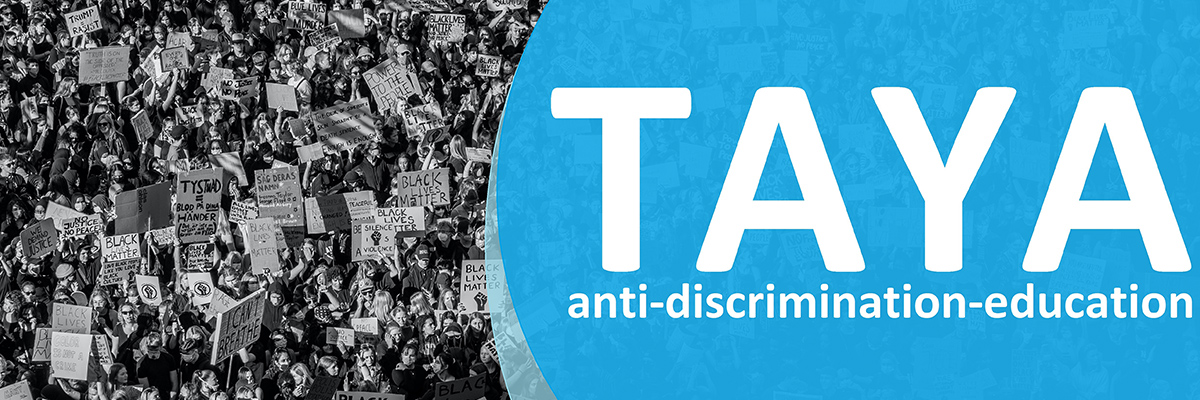During and after the so-called “Summer of Migration” an unprecedented number of refugees entered the European continent, which led to a broad right-wing backlash on societal as well as political levels. This caused the common idea of European solidarity to dwindle and nationalism to thrive, while public attention towards the suffering at European borders decreased. One consequence of this polarization is social tensions and conflicts which rise parallel to concerns about the refugees’ plight on the one hand, and the well-being of European host societies on the other.
TAYA targets youth workers who are interested in anti-racist and decolonial concepts, and equips them with the tools necessary to mainstream anti-racism into their work. Through pedagogical methodologies of anti-bias, the training enhances youth's abilities to design and conceptualize educational activities that address racist patterns of thought and action. To further sustain the results of the project, findings and lessons learned will be spread through a facilitation guideline developed jointly by participants and CRISP-facilitators to support fellow youth workers to develop activities addressing racism in their communities.
The project will take place in the form of two trainings, each around a week long, where participants will be introduced to theory and practice as well as methods of anti-discrimination-education to foster youth awareness in their communities. In the first workshop, participants will learn the theoretical foundations of postcolonial and critical whiteness studies, as well as discrimination, racism and intersectionality. In the second workshop, participants will use decolonial and anti-racist approaches to develop facilitation guidelines focused on non-formal education-methodologies of anti-bias and anti-racism-education.
Both workshops will include various interactive methods such as betzavta exercises, simulation-games, self-reflection, case studies, expert talks and related interactive exercises, forum theater methods, and day-long study visits.
Project Goals
The project aims to raise youth’s awareness and sensitivity towards issues of discrimination with an emphasis on racism using topical approaches from intersectional, postcolonial and critical Whiteness studies.
Furthermore, the project enables youth facilitators to integrate and mainstream anti-discrimination into their work and improve their ability to design and conceptualize activities that aim at decreasing racist patterns of thought and action and increasing tolerance and empathy among their target group. Finally, it aims to multiply the impact through developing a facilitation guideline by participants.
Target Group
Youth workers who are interested in the reflection of their practice against the background of anti-racist and decolonial concepts, and in developing a guideline /handbook with state-of-the-art methodologies and tools for European youth workers.
For your application please fill out this application form.
For more information see the call for participants or contact us
Activities
The project consists of two trainings:
Training I. Fundamentals of Anti-Discrimination-Education: Raises youth’s awareness on conscious and unconscious forms of discrimination, through learning the theoretical foundations of postcolonial, critical whiteness and intersectionality studies, as well as definitions of racism, discrimination, prejudice and stereotypes.
Training II. From Theory to Practice: Emphasizes on non-formal education-methodologies of anti-bias and anti-racism-education, where participants will design educational activities that address discrimination and assess pedagogical methods of decolonial and anti-racist approaches. In addition to developing a facilitation guideline to support other youth workers to develop activities tackling racism in their communities.
Outcomes / Achievements
Through the 3 main areas of competence: 1) anti-discriminatory attitudes 2) pedagogical methodologies of anti-bias 3) knowledge about theoretical fundamentals, youth workers will become more aware of racial discrimination issues and will acquire the knowledge and skills necessary to integrate anti-racism approaches in their practice.
Participants will design educational activities that address racist patterns of thought, and develop a tailor-made facilitation guideline to help other youth workers develop activities tackling racism in their communities, hence participants will become experts within their network and will act as multipliers, spreading the findings of the project in different contexts.











